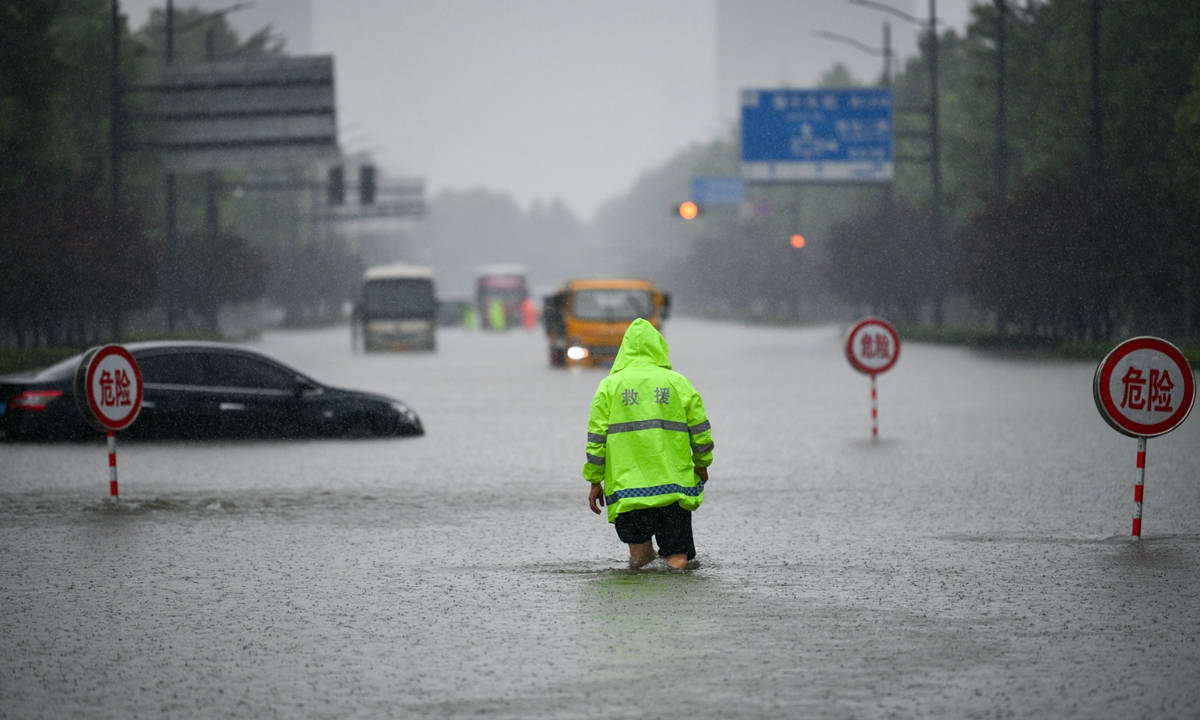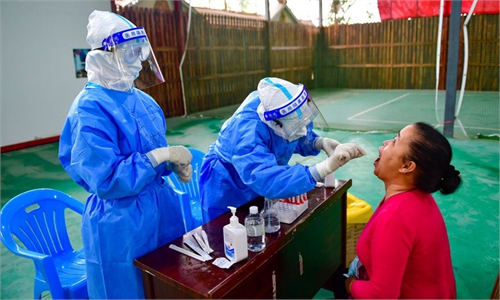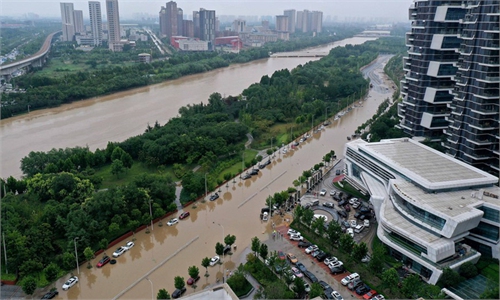
A policeman, in a yellow jacket with the Chinese characters "Rescue," directs traffic in a flooded road in Zhengzhou. The signs in red say "Danger." Photo: IC
Chinese lawmakers on Monday started deliberating a draft law revision to improve the country's emergency response system, which has encountered some new challenges in recent years given the COVID-19 epidemic and serious floods earlier this year.
The draft revision to the Emergency Response Law was submitted to the ongoing session of the Standing Committee of the National People's Congress, China's top legislature, for first reading, the Xinhua News Agency reported.
The draft proposes establishing an emergency management system featuring a unified command, specialized and regular operations, quick response times, and effective coordination between the upper and lower levels.
The draft calls for building an online direct reporting system and an automatic rapid reporting system to increase the efficiency of emergency reporting.
It also defines further efforts to establish sound guarantee systems for material reserves, transportation services and energy for emergency response work.
The draft stipulates special protection and priority for minors, the elderly, people with disabilities, and pregnant or nursing women in emergencies.
The current Emergency Response Law was enacted in 2007 and has played a vital role in preventing and reducing emergencies.
Through over one year of fighting against the COVID-19 epidemic, China confirmed the key role of administrative capacity and institutional adaptability in crisis management and emergency responses, and demonstrated its strong social security system in withstanding the unprecedented health crisis.
But COVID-19 also provided a once in a generation opportunity to learn from and improve on existing policies, to be resilient to future crises, for a more sustainable development path, observers said.
Besides, serious floods in many places, especially the huge mistake of the government of Zhengzhou, capital of Central China's Henan Province, exposed loopholes in both administrative management and the construction and maintenance of flood control systems in China, experts pointed out.
On July 20, the Zhengzhou meteorological department issued 10 red alerts for rainstorms. Guidelines for red alerts, the highest warning signal, require the suspension of rallies, classes and businesses (except for special industries), and all emergency responses are required. But the red alerts failed to raise the alarms with the local governments in Henan.
Global Times



